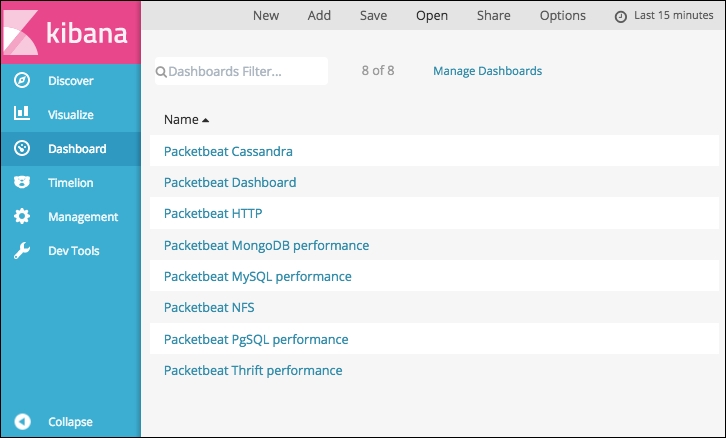Setting up Kibana Dashboards
For all of the Beats, there are few sample dashboards already created. We can import those dashboards using a script provided with each beat. Let's take a look at dashboards for each beat.
PacketBeat
Import the dashboards <indexentry dbid="92615" content="Packetbeat:importing, for Kibana Dashboards">for Packetbeat by running the following command in the Packetbeat directory:
./scripts/import_dashboards -es http://192.168.0.110:9200
This will import all dashboards for Packetbeat and in Kibana. We can see these dashboards by navigating to Kibana Web Interface | Dashboard | Open, and you should see a list of pre-set dashboards:

By default, all of the dashboards will be imported. In case we do not want to keep a dashboard, we can delete it using the Manage Dashboards link.
MetricBeat
Import the dashboards for MetricBeat by running the following command in the MetricBeat directory:
./scripts/import_dashboards -es http://192.168.0.110:9200
This will import all...







































































